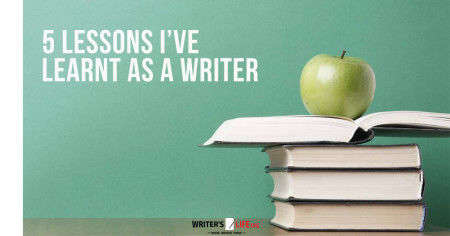- How To Tackle Jealousy In Creative Writing
- Common Submission Mistakes
- How To Stop Your Blog Becoming Boring
- The One Thing Every Successful Writer Has In Common
- How To Make Yourself Aware Of Publishing Scams
- Why Almost ALL Writers Make These Grammar Mistakes At Some Point
- 5 Tips For Authors On How To Deal With Rejection
- Top Mistakes to Avoid When Writing a Novel
- How to Avoid Common New Writer Mistakes
- 10 Mistakes New Fiction Writers Make
Is Imitation The Sincerest Form Of Flattery – Copying Other Writers, Is It OK Or Not?
When a brand new author suddenly gets recognition, you’ll often hear them being described as ‘the next… (insert famous author’s name here)’ This is because their work is reminiscent of another great author that has gone before them.
Let’s face it, all writers are influenced by what they have read, and, whether consciously or not, have probably copied another writer they have admired in their own work.
Be it a brilliant voice or style, a clever plot line, or even simply a word or phrase that perfectly captures the imagination, the truth is that many of us have used the voice of other writers to truly find our own.
This has been going on for years. In fact the American novelist Cormac McCarthy once said “The ugly fact is books are made out of books.” In his own work he would happily admit using direct quotes from other works such as the Bible, Moby Dick and Samuel Chamberlain.
Even the great William Shakespeare wasn’t beyond copying another writers work, in fact much of his writing was directly influenced by the celebrated Roman poet, Ovid. He borrowed his story lines from ancient Roman playwrights too, and, believe it or not a book called ‘The Tragicall Historye of Romeus and Juliet’ was actually written 30 years before Shakespeare produced his own play ‘Romeo and Juliet.’ Who would have thought it?
One of the most important ways a writer can practice and hone their craft is by reading the work of others. Many writers talk about how they ‘ consume’ books. They do this to learn more about the craft. Your favourite writers will likely have had an influence on your writing - I know mine have.
If you are going to copy from another writer you have to make sure you do it correctly. Naturally simply taking chapters word for word from another writers book and claiming them as your own is not the way to go. John Milton gave some excellent advice when he said the following
“Copy from one, it’s plagiarism; copy from two, it’s research,” - what he meant was you should be influenced by several different authors, and combining their different styles will give you your own unique one! Don’t just pick who you imitate at random, or simply because their books have sold incredibly well. Think about your story and what you are trying to do with it, think about your audience and who you would like to read it, then read books in a similar style
2. Don’t be obvious
If you read something that you simply love and think ‘I want to write like that’ then by all means try to copy the style, but it’s always a good idea to try and come up with your own unique stamp on it - tweak it slightly so that it has originality - remember no reader just wants to read the exact same thing over and over again. Of course there are copyright laws to think about too, so being subtle with your imitation is always a good idea
3. Do more
Being a modern writer, it is your job to explore new ways or writing, to push boundaries, to test you readers in a way they have never been tested before. It’s like anything in history, people take what has been tried and tested and think ‘how can I improve this? How can I make it better?’
Do the same with your writing and before you know it you’ll have your own exciting style - and hopefully an army of fans who love it too.
So what are you waiting for, get reading, get copying, just make sure you do it right!




















